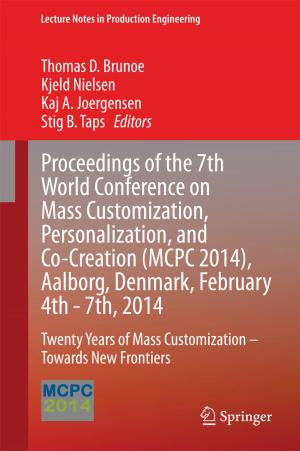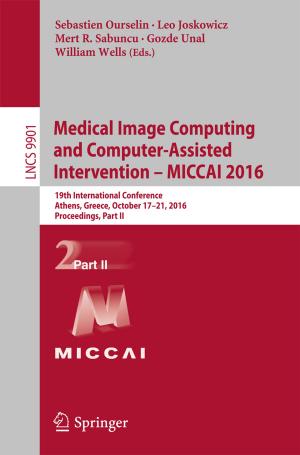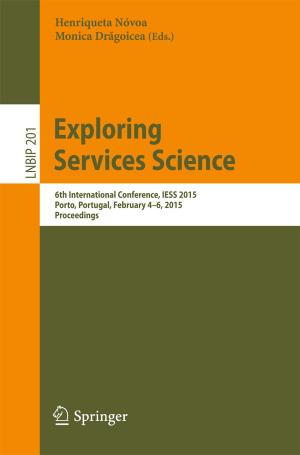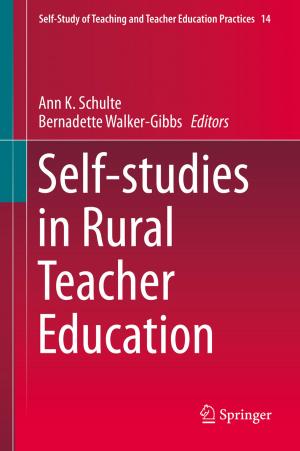Towards Green Campus Operations
Energy, Climate and Sustainable Development Initiatives at Universities
Nonfiction, Science & Nature, Technology, Power Resources, Science, Biological Sciences, Environmental Science, Nature| Author: | ISBN: | 9783319768854 | |
| Publisher: | Springer International Publishing | Publication: | May 14, 2018 |
| Imprint: | Springer | Language: | English |
| Author: | |
| ISBN: | 9783319768854 |
| Publisher: | Springer International Publishing |
| Publication: | May 14, 2018 |
| Imprint: | Springer |
| Language: | English |
Matters related to sustainable development, albeit global in nature, are best handled at the local level. This line of thinking is particularly true to the higher education context, where the design and implementation of sustainability initiatives on campuses can demonstrate how a given university translates the principles of sustainable development into practice, at the institutional level. Yet, there is a paucity of specific events where a dialogue among sustainability academics and practitioners concerned with a) research, projects b) teaching and c) planning and infra-structure leading to campus greening takes place, so as to allow a transdisciplinary and cross-sectoral exchange of ideas and experiences on the issues, matters and problems at hand. It is against this background that this book has been prepared. It is one of the outcomes of the “First Symposium on Sustainability in University Campuses” (SSUC-2017) organised by the University of São Paulo in Brazil, Manchester Metropolitan University (UK), the Research and Transfer Centre “Applications of Life Sciences” of the Hamburg University of Applied Sciences (Germany), and the Inter-University Sustainable Development Research Programme (IUSDRP).
This book showcases examples of campus-based research and teaching projects, regenerative campus design, low-carbon and zero carbon buildings, waste prevention, and resilient transport, among others. It also demonstrates the role of campuses as platforms for transformative social learning and research, and explores the means via which university campuses can be made more sustainable.
The aims of this publication are as follows:
i. to provide universities with an opportunity to obtain information on campus greening and sustainable campus development initiatives from round the world;
ii. to document and promote information, ideas and experiences acquired in the execution of research, teaching and projects on campus greening and design, especially successful initiatives and good practice;
iii. to introduce methodological approaches and projects which aim to integrate the topic of sustainable development in campus design and operations.
This book entails contributions from researchers and practitioners in the field of campus greening and sustainable development in the widest sense, from business and economics, to arts, administration and environment.
Matters related to sustainable development, albeit global in nature, are best handled at the local level. This line of thinking is particularly true to the higher education context, where the design and implementation of sustainability initiatives on campuses can demonstrate how a given university translates the principles of sustainable development into practice, at the institutional level. Yet, there is a paucity of specific events where a dialogue among sustainability academics and practitioners concerned with a) research, projects b) teaching and c) planning and infra-structure leading to campus greening takes place, so as to allow a transdisciplinary and cross-sectoral exchange of ideas and experiences on the issues, matters and problems at hand. It is against this background that this book has been prepared. It is one of the outcomes of the “First Symposium on Sustainability in University Campuses” (SSUC-2017) organised by the University of São Paulo in Brazil, Manchester Metropolitan University (UK), the Research and Transfer Centre “Applications of Life Sciences” of the Hamburg University of Applied Sciences (Germany), and the Inter-University Sustainable Development Research Programme (IUSDRP).
This book showcases examples of campus-based research and teaching projects, regenerative campus design, low-carbon and zero carbon buildings, waste prevention, and resilient transport, among others. It also demonstrates the role of campuses as platforms for transformative social learning and research, and explores the means via which university campuses can be made more sustainable.
The aims of this publication are as follows:
i. to provide universities with an opportunity to obtain information on campus greening and sustainable campus development initiatives from round the world;
ii. to document and promote information, ideas and experiences acquired in the execution of research, teaching and projects on campus greening and design, especially successful initiatives and good practice;
iii. to introduce methodological approaches and projects which aim to integrate the topic of sustainable development in campus design and operations.
This book entails contributions from researchers and practitioners in the field of campus greening and sustainable development in the widest sense, from business and economics, to arts, administration and environment.















